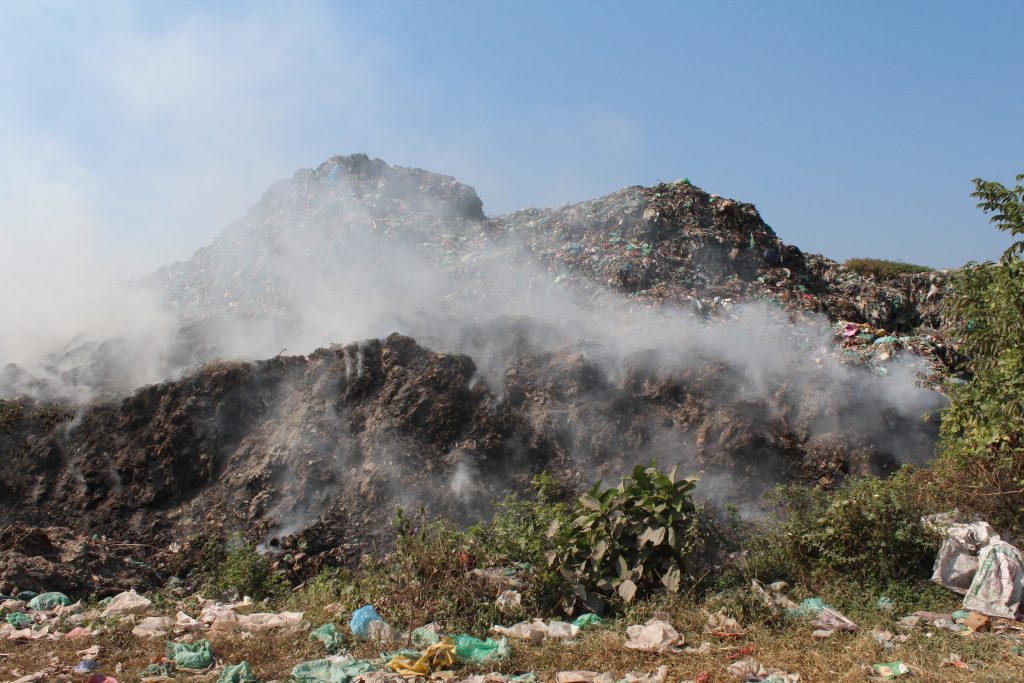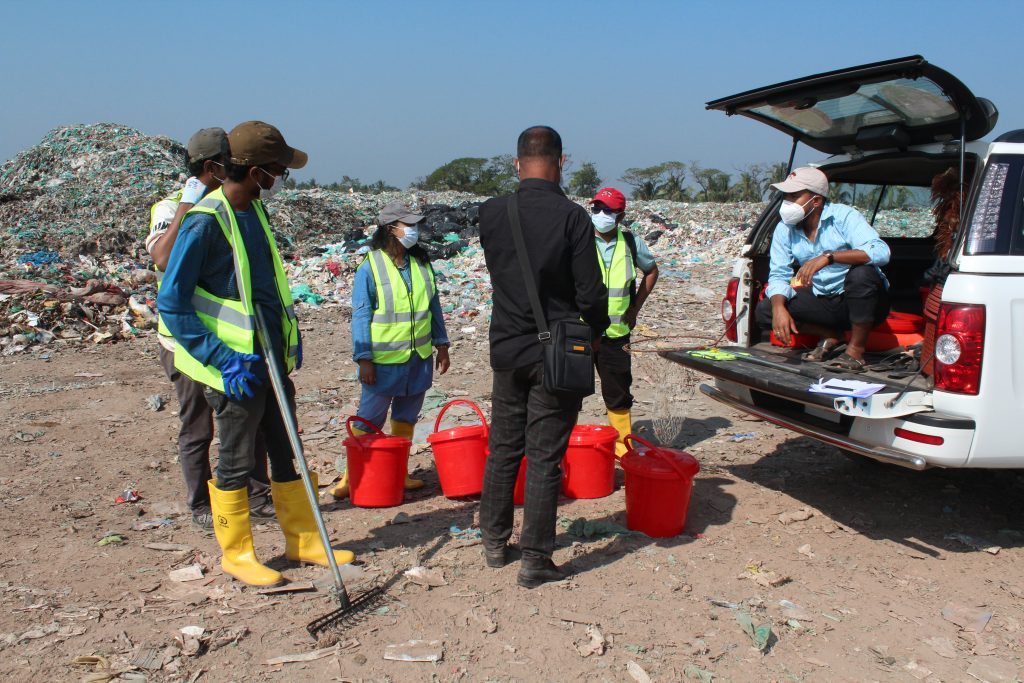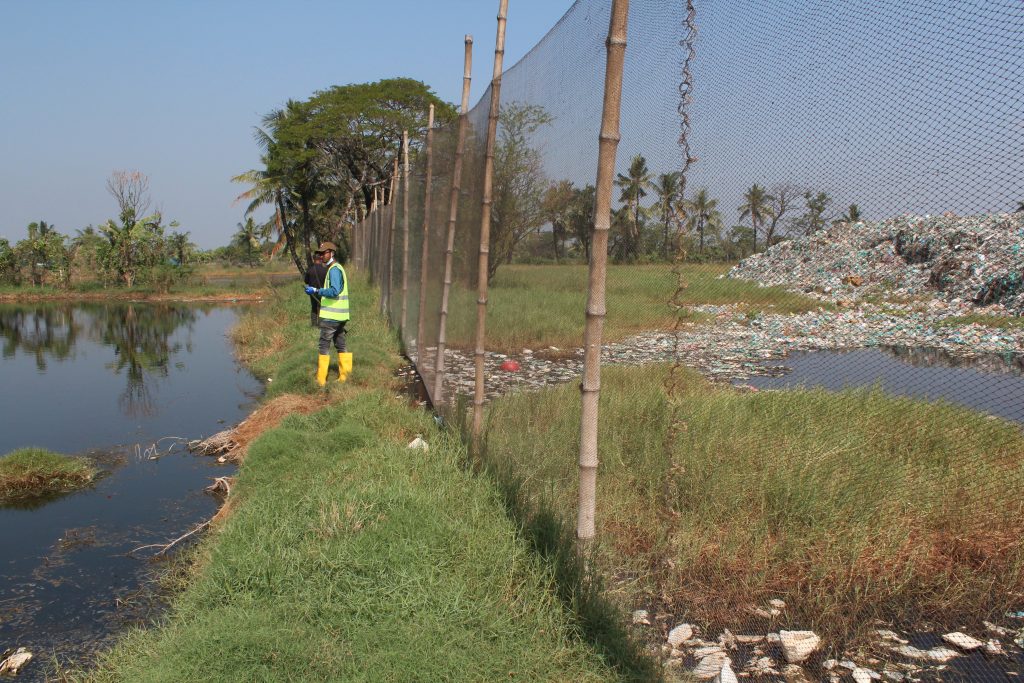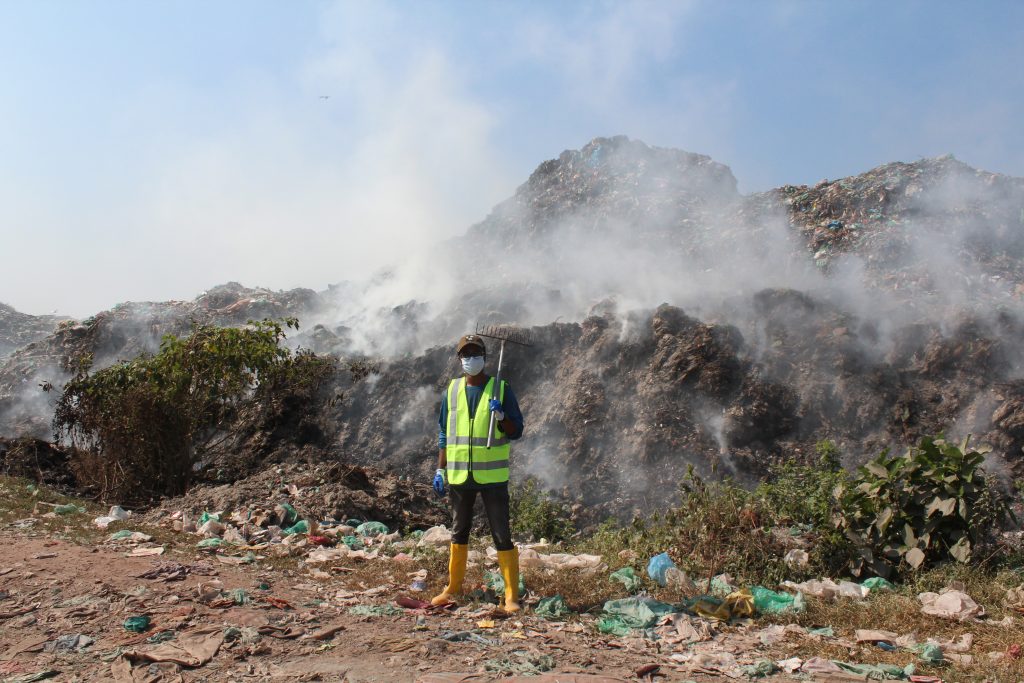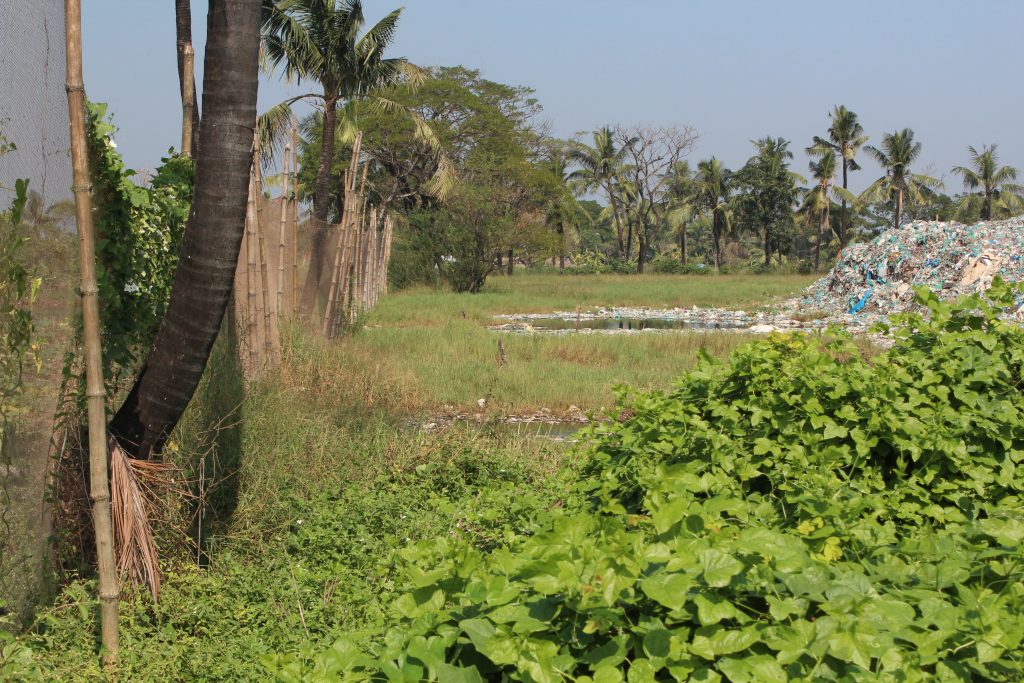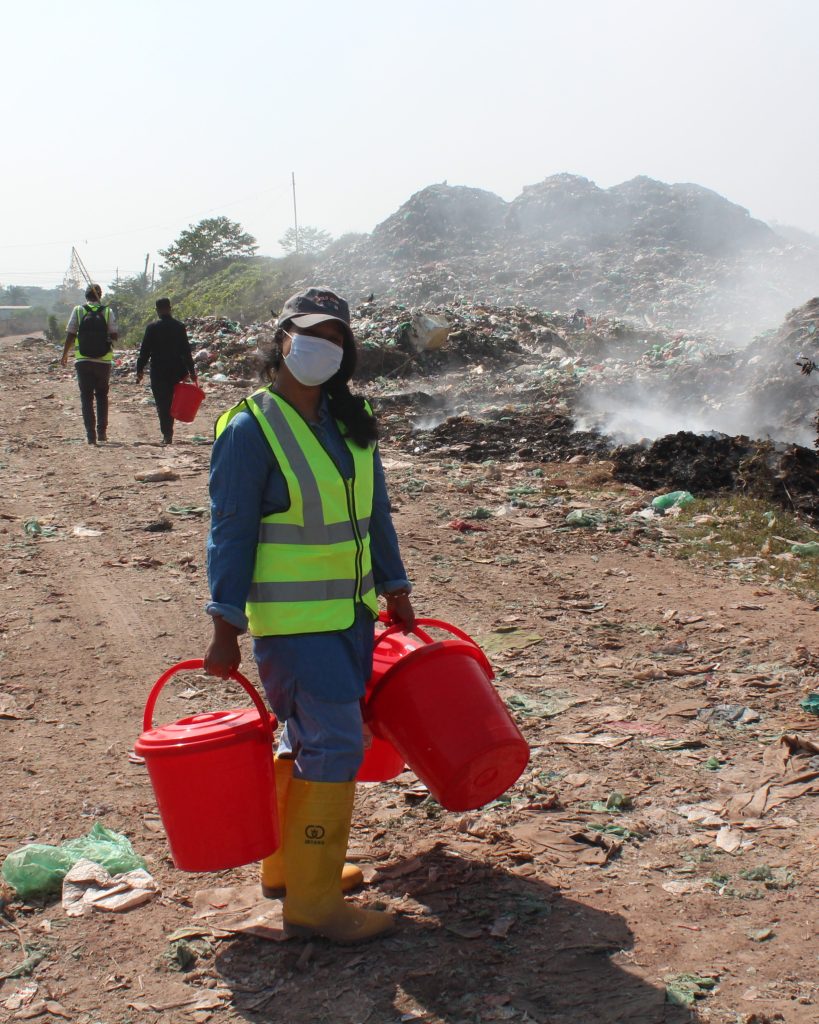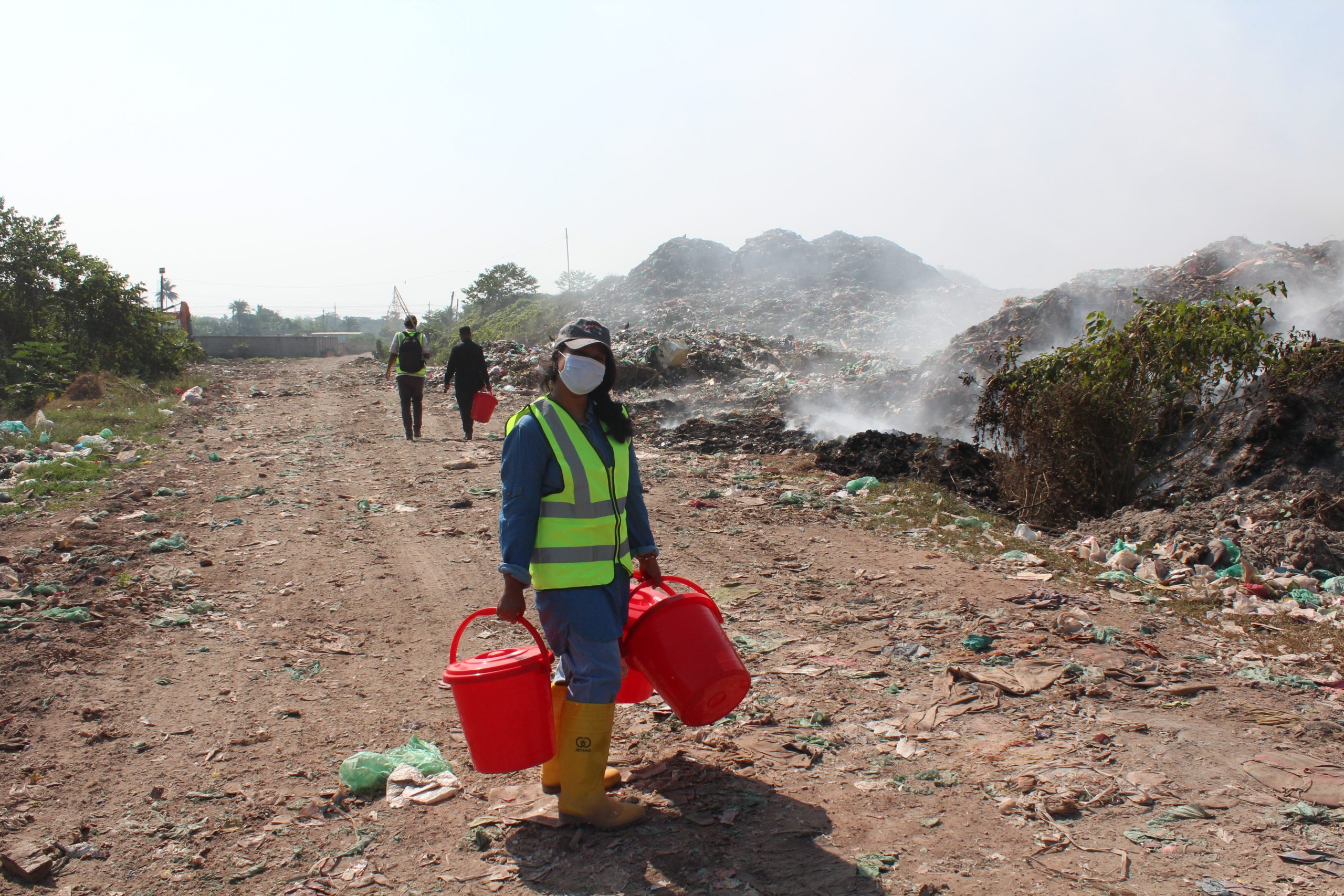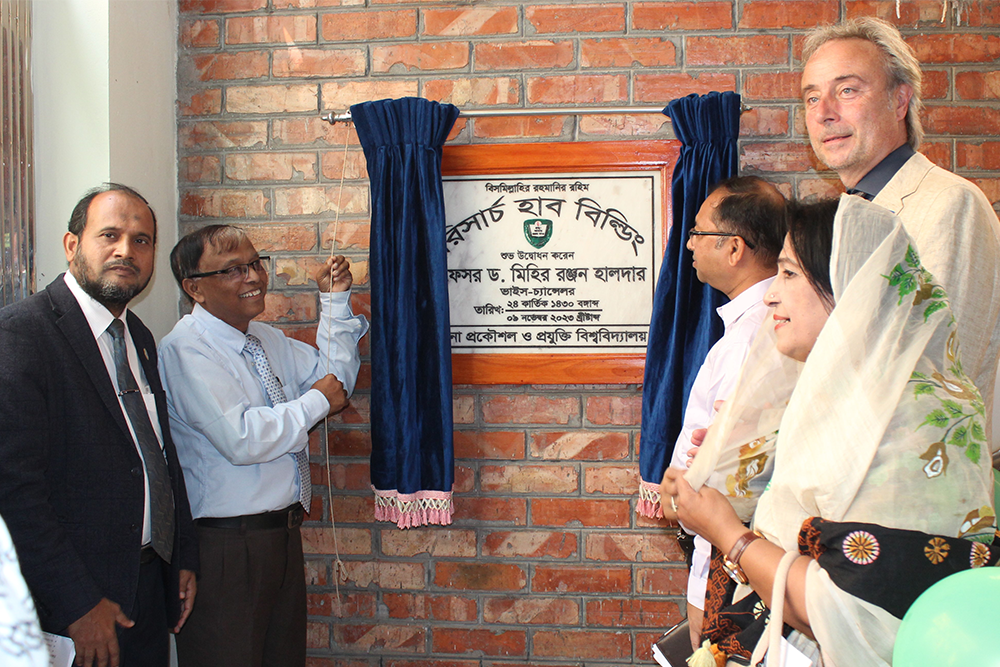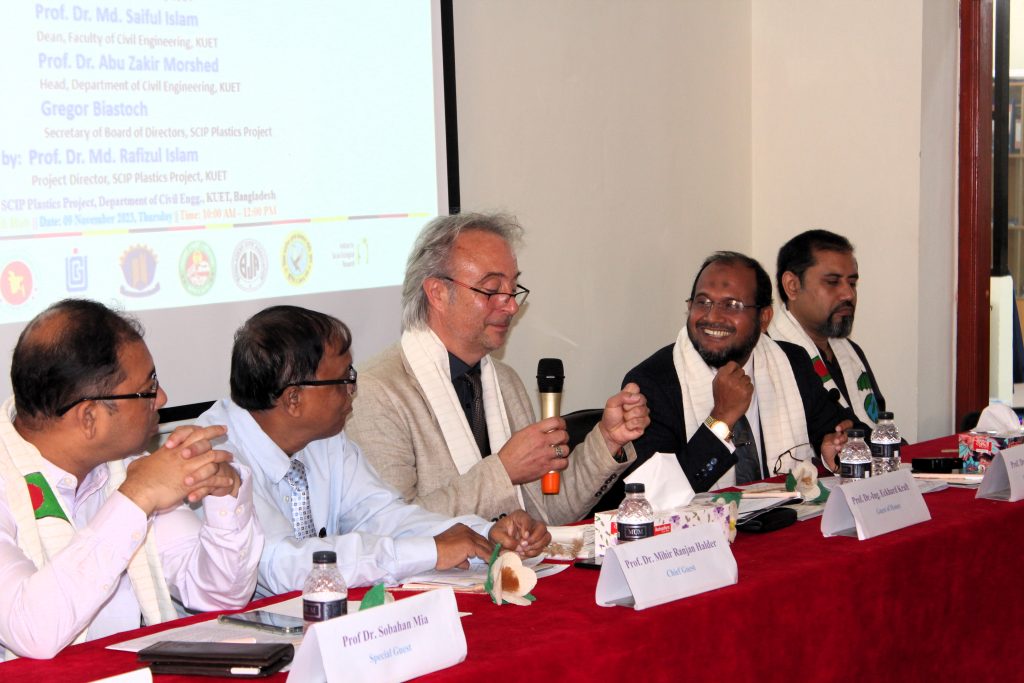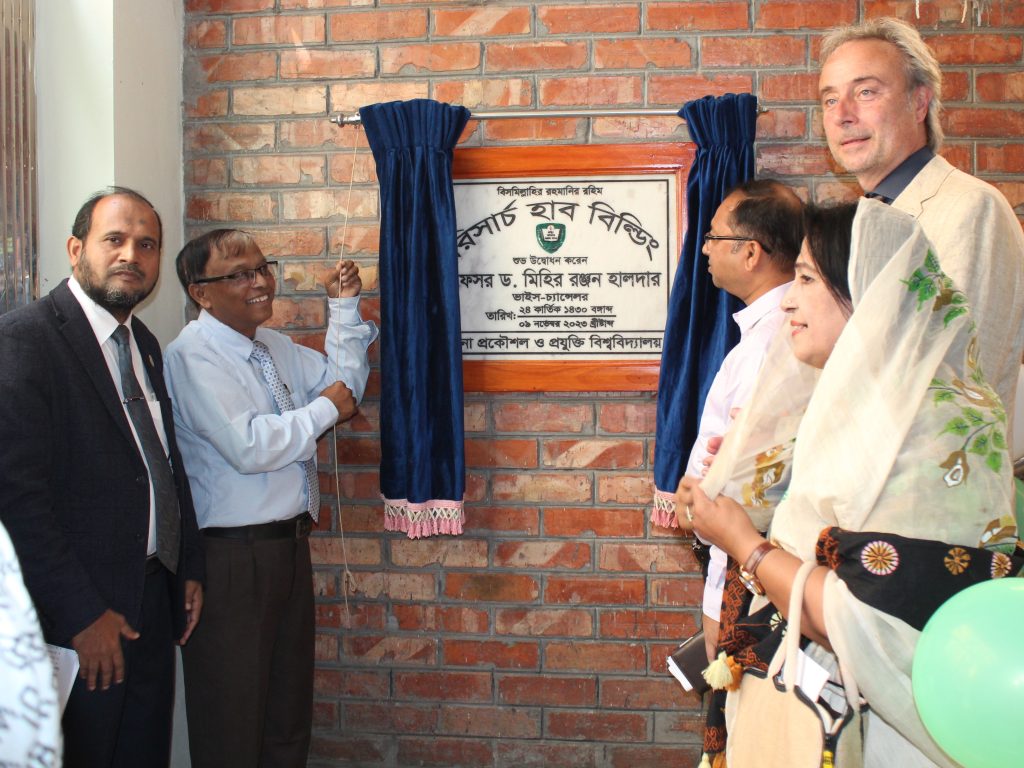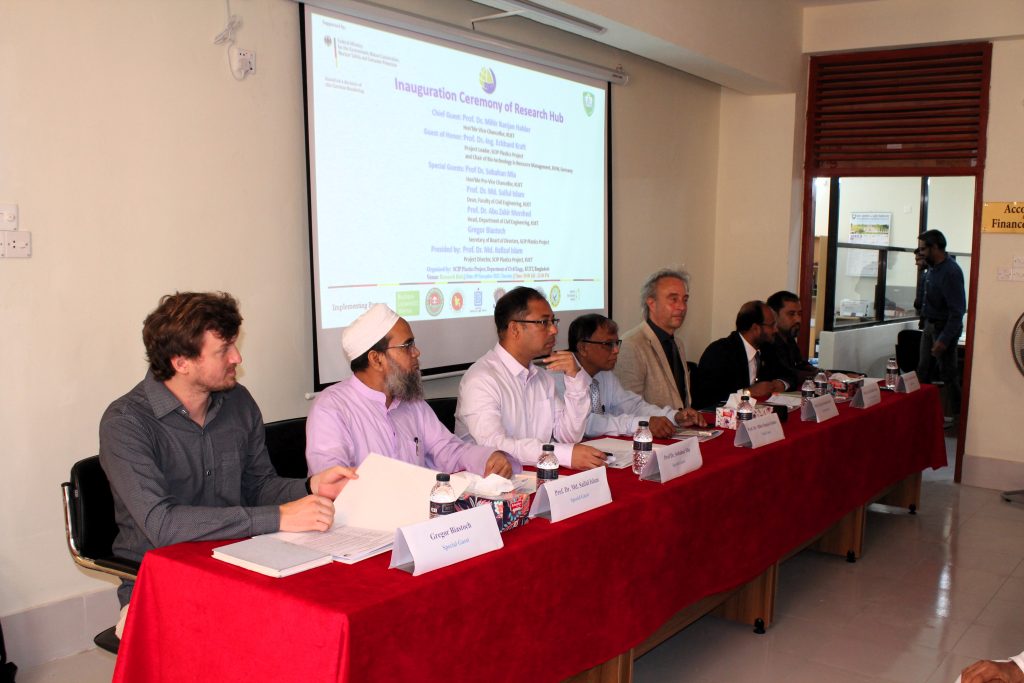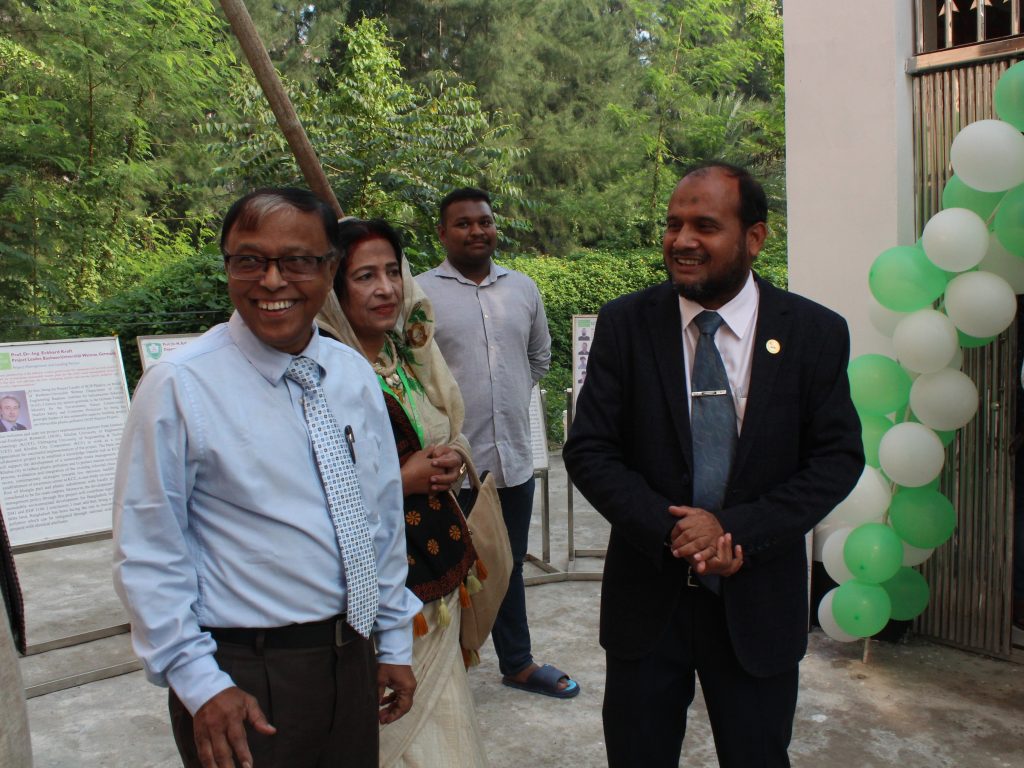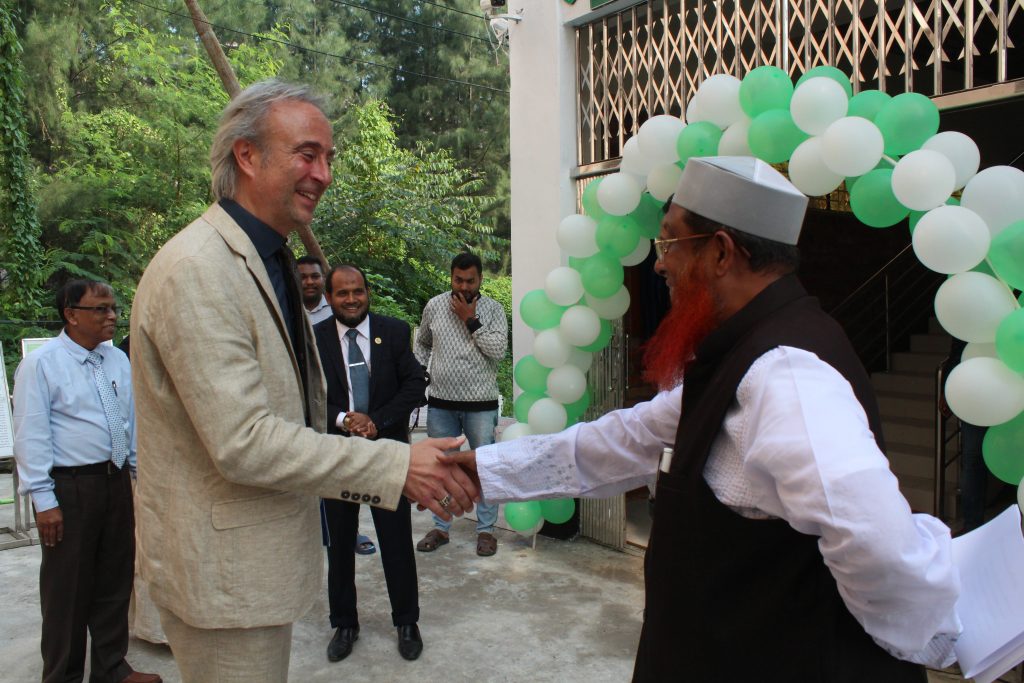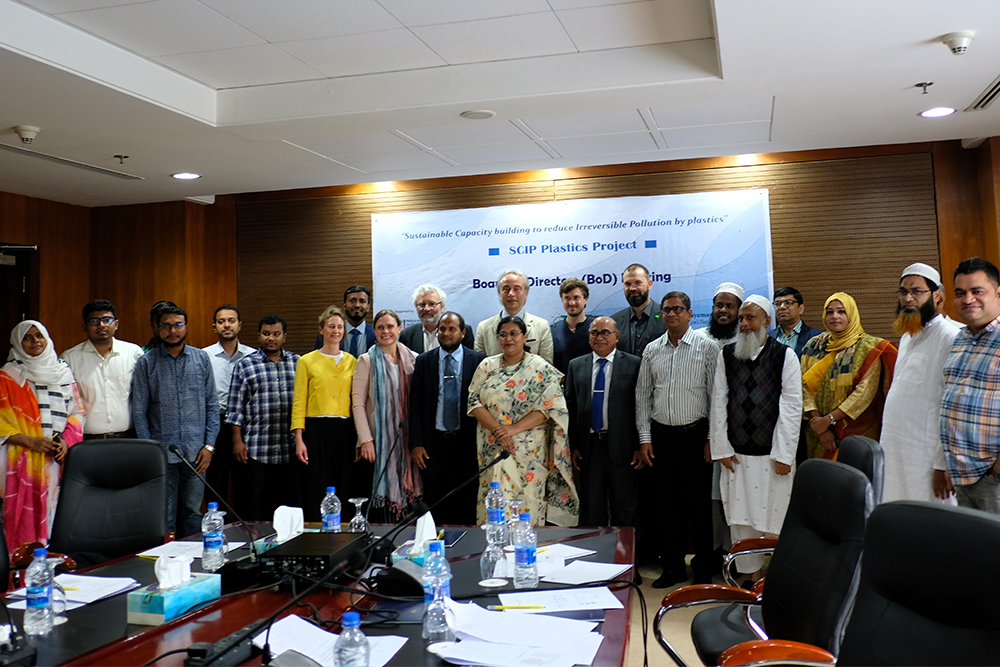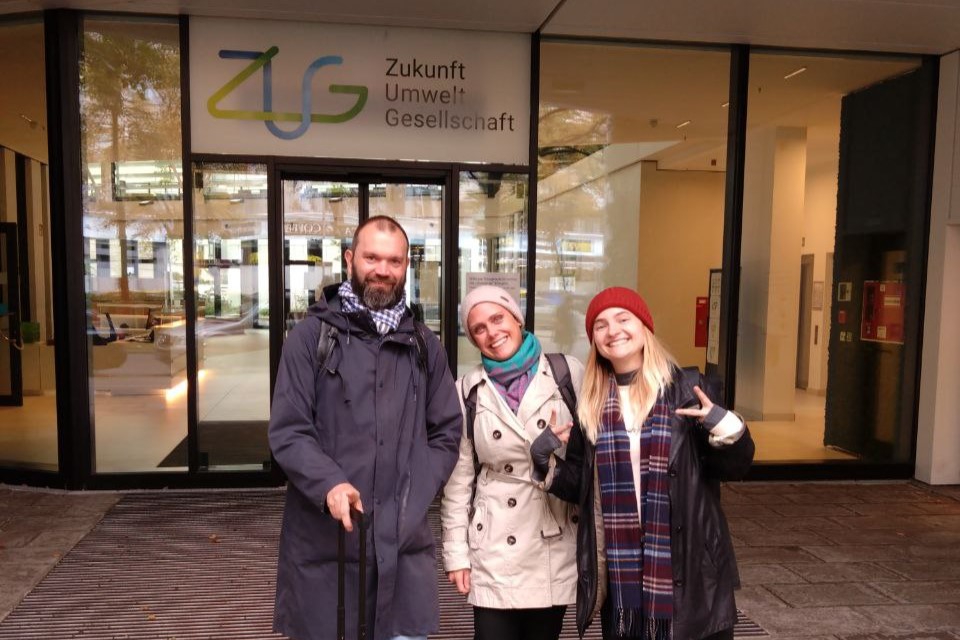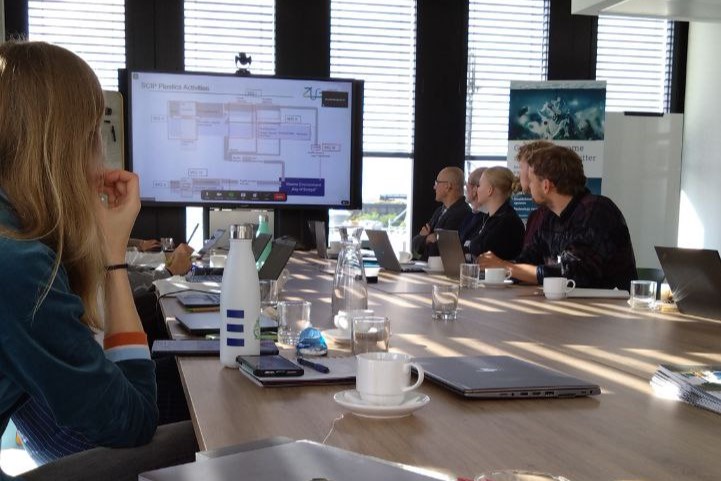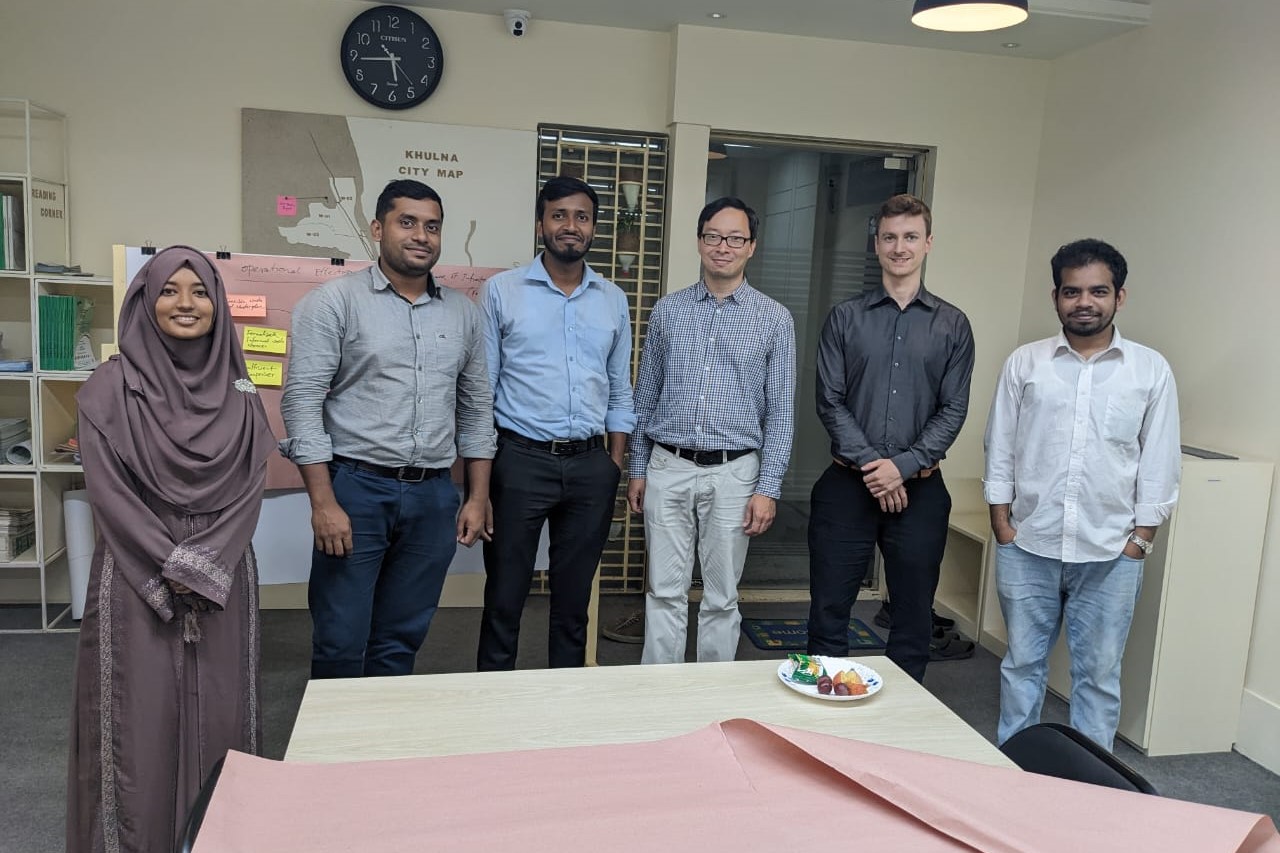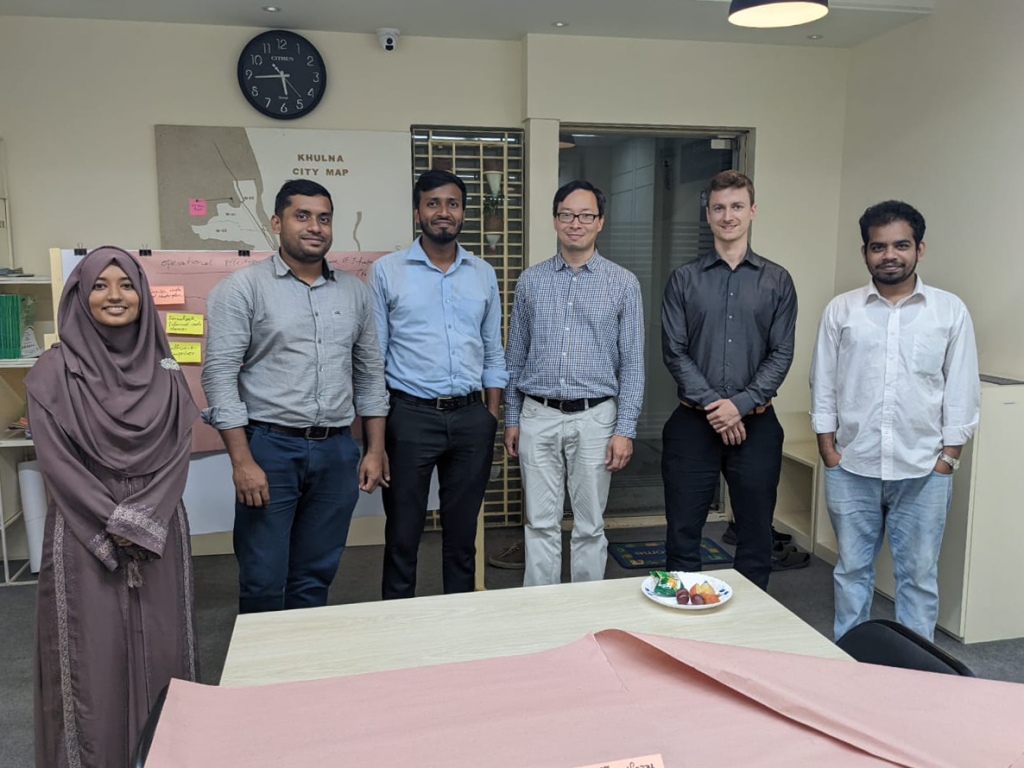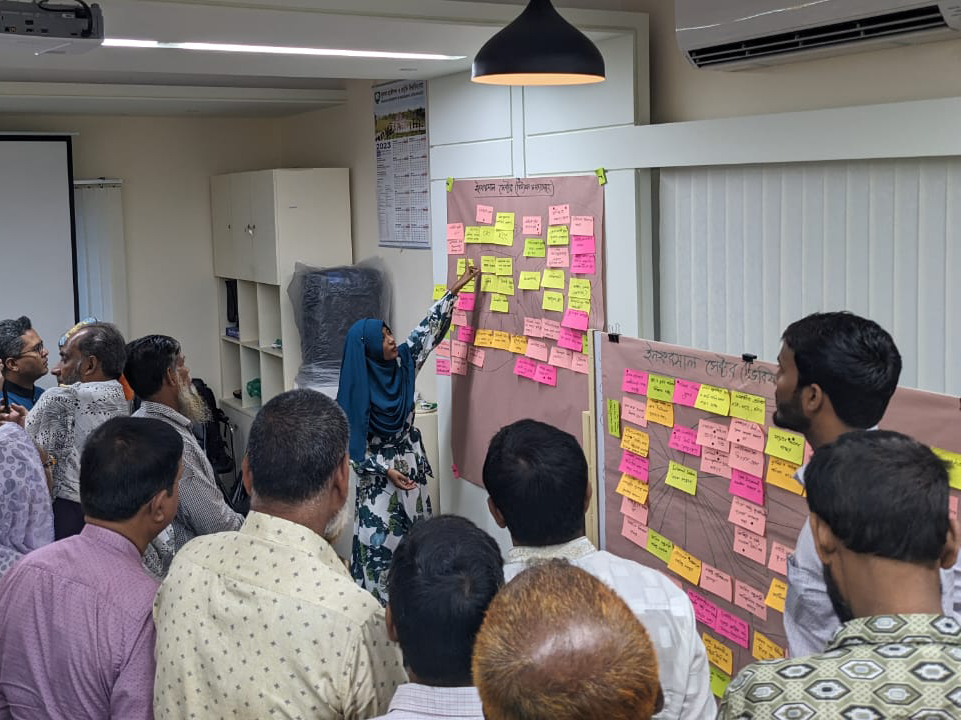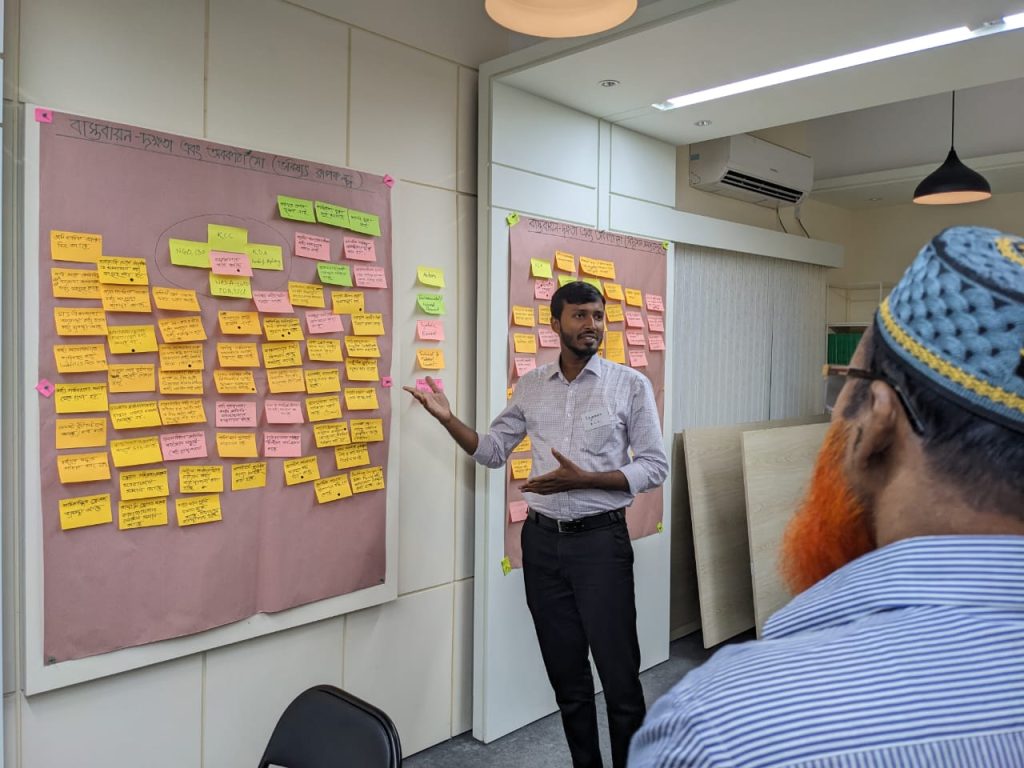Over the last year, WG III investigated various processes and activities at the Rajbandh open dump site, the only active final waste disposal site for Khulna city. Now, the team will start monitoring and quantifying plastic emissions in the form of wind-blown litter and washed-out material. On 13.11.2023, the WG III team, Pangkaj Kumar, Salahuddin Setu, Tasnova Imam, Saptarshi Mondal and Senta Berner visited the disposal site and outlined a first monitoring protocol, as well as necessary improvements along the fence line and embankments to ensure quantifiable sample collection. The team also tested a drone which will be part of the monitoring, especially to gauge the impact of extreme weather events on waste body movement and plastic emissions.
